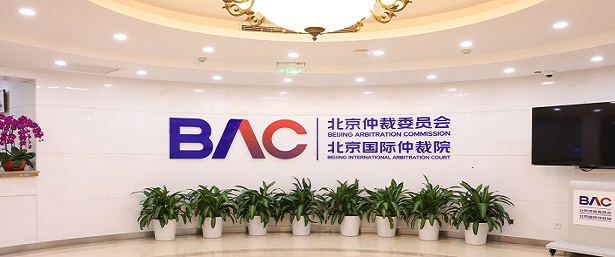
发布时间: Wed Sep 16 00:54:01 CST 2020
发起人在公司设立过程中需要为公司将来经营做准备工作,可能涉及诸多合同的签订。在签订此类合同过程中,发起人以自己而非公司名义出现的情形并不少见。最高人民法院《关于适用<中华人民共和国公司法>若干问题的规定(三)》(以下简称“《公司法解释三》”)第二条规定了合同相对人得以主张权利的情形,但未对成立后的公司据此合同主张权利的情形加以明确。特别是合同中约定了仲裁条款时,争议会更为复杂。本文以一起租赁仲裁纠纷为例,尝试对此问题进行分析。
基本案情
2013年初,出租人A公司与承租人王某签订房屋租赁合同,约定租赁标的作为办公使用,发生争议提交北京仲裁委员会/北京国际仲裁中心(北仲)仲裁。合同签订后,王某向A公司一次性支付截至2015年底的租金。
2013年中,王某作为发起人之一的B公司成立,并以本案租赁标的为注册地。2014年底,B公司解散,并向A公司发出解除租赁合同通知,要求退还剩余一年租金。因与A公司沟通退款事宜无果,B公司提起仲裁,请求解除租赁合同并退还多收取的租金。A公司提出管辖权异议,其理由为从未与B公司签订过房屋租赁合同,双方没有仲裁协议,北仲对本案并无管辖权。
本案属于较为典型的发起人以自己名义与相对人签订合同的情形,就仲裁管辖权事宜,如下两个问题当属关键:
“名义”问题。合同首部一般都列有当事人或其代理人名称或姓名,文末也多有签章页。在当事人和签章处出现的主体(本文暂称之为“名义当事人”),通常就是合同当事人。本案合同中名义当事人为A公司和王某,在通常情况下,合同应当仅约束A公司和王某。需要讨论的是,如果在合同条款中对名义当事人身份作出特别说明的情况下,是否会影响仲裁当事人身份的认定?
比如本案合同中明确约定,王某系拟成立的B公司发起人,在B公司成立后合同权利义务均转移至公司。笔者认为,前述约定即可认定为A公司同意尚未成立的B公司是缔约主体。相应的,在本案中亦可视为A公司与B公司之间存在仲裁的合意,成立后的B公司可以合同中的仲裁条款为依据,向A公司提请仲裁。
合同履行问题。在合同(尤其是继续性合同)履行过程中,当事人之间通常会有多次接触和沟通。租赁合同的履行中,涉及租金支付、租赁物使用等诸多事项。本案中,假如无前述对缔约主体的特别说明,仅有A公司知晓B公司实际承担租金并使用租赁物这一事实,是否足以得出相同结论呢?
笔者认为,在前述假设下,仍需查明A公司是否实质上知晓王某是B公司的发起人。如果知晓且未表示反对,则应类推适用《公司法解释三》第二条第二款的规定,B公司可依据合同仲裁条款向A公司主张权利;如果并不知晓,则此情形归属于第三人履行更为妥当,即B公司不论是行使权利还是主张义务,均系第三人而非当事人身份,B公司若据此主张权利,A公司不受仲裁条款的约束。
总结
关于仲裁协议继受主体问题的基本规定可见于最高院《关于适用<中华人民共和国仲裁法>若干问题的解释》第八条、第九条,但其中并未涉及设立中公司签订仲裁协议的效力问题。因此,要探究发起人以自己名义签订合同中仲裁条款的效力,可主要从《公司法解释三》第二条中寻找依据。而《公司法解释三》规定的情形为合同相对人如何主张权利,但就发起人或公司的权利如何主张则付之阙如。
前文案情分析所述两个方面尝试填补这一模糊地带——就名义问题侧重从仲裁协议继受主体的角度考量、就合同履行问题侧重从合同相对人对实际履行的接受和发起人身份认知的角度考量。因此,发起人若希望为成立公司而签订的仲裁条款,同样及于成立后的公司,较为可取的做法是在合同中明确发起人身份和拟设立公司的关系,或以成立后公司在实际履行时及时向相对人披露发起人身份和公司之间的关系。否则,成立后的公司依据发起人以自己名义签订的仲裁条款向相对人主张权利时存在较大的不确定性。
作者:北京仲裁委员会/北京国际仲裁中心(北仲)仲裁员章杰超。北仲高级主管许捷、业务拓展处(国际案件处)顾问杨雨菲对文章亦有贡献。
Ensuring arbitration clause validity in signed company contracts
Apromoter of a company may enter into many contracts in relation to the establishment of that company. These contracts are frequently signed in the name of the promoter. Article 2 of the Provisions of the Supreme People’s Court on Several Issues Concerning the Application of the Company Law of the People’s Republic of China (III) (Interpretation of Company Law III) provides rules for other parties in such contracts to claim against the promoter or the company in different situations.
The article, however, is silent on rules for the company to make claims under the contract. This unresolved question becomes tricky when an arbitration clause is involved. The following arbitration case illustrates this problem, and this article aims to provide its solution.
FACTS OF THE CASE
In 2013, company A, the lessor, signed an office lease with Mr Wang. The arbitration clause refers the dispute to the Beijing Arbitration Commission/Beijing International Arbitration Centre (BAC/ BIAC). Mr Wang paid the rent until the end of 2015, after the commencement of the lease.
Half a year later, company B was established and registered its domicile on the basis of the lease. Mr Wang is one of the promoters of company B. At the end of 2014, company B entered a dissolution and sent a notice of termination to company A, demanding a refund of the remaining one year of rent.
After unsuccessful negotiations, company B filed an arbitration against company A, claiming a termination of the lease and a refund. Company A raised an objection to jurisdiction, claiming company B had no contractual relationship under the lease, and therefore no arbitration clause existed between companies A and B. In other words, the BAC/BIAC had no jurisdiction over the case.
The above-mentioned case presents a typical situation where the promoter of the company signed contracts in its own name. Two tests should be considered for deciding the jurisdiction:
Test of capacity. The beginning and ending of a contract normally indicate the parties’ names, or their representatives. The persons who signed or sealed a contract (the signing parties) normally are the parties of the contract. In this case, the signing parties are company A and Mr Wang. That is, the lease binds these two parties. The first test will be whether the text of the contract deliberately expands the signing parties’ capacity.
In this case, the lease has expressly clarified that Mr Wang is the promoter of company B, and all the contractual rights and obligations will transfer to company B after its establishment. Therefore, the consent of company A was identified through the clarification. Company B’s filing of arbitration further confirmed the expansion of the signing party’s capacity, where the first test is satisfied.
Test of performance. Normally, in performance of a contract, contractual parties will have more than one communication. Especially in the lease, parties have to communicate on matters regarding the confirmation of rent payment, the use of the leased property, etc. The second test is whether the party concerned performed as the contractual party during the actual performance.
In this case, if the first test fails, it is necessary to consider the details of performance. If company A was aware of Mr Wang’s expanding capacity as the promoter of company B, and no objection was recorded during company B’s actual performance, the interpretation of Company Law III could be explained as the ground for company B’s claim against company A under the same arbitration clause.
However, where company B performed the lease with no indication or recognition as the contractual party, such performance could be taken as a non-party’s conduct. The non-party, entrusted or not, has no intention to be bound by the arbitration clause, and as a result the arbitration clause does not bind companies A and B.
CONCLUSION
Articles 8 and 9 of the Interpretation of the Supreme People’s Court on Concerning the Applicability of the Arbitration Law of the People’s Republic of China (the Interpretation of Arbitration Law) prescribe the rules of succession of arbitration clause concerning merger, division and assignment. Although some could argue the similarity, the articles do not directly apply to the situation in the establishment of a company. Therefore, in order to determine the validity of an arbitration clause in contracts signed by the promoter of the company, in its own name, the Interpretation of Company Law III is the possible gauge.
However, it only prescribes the situation for the contractual counterpart to claim, leaving vague the situation for the promoter or the company to advocate rights. The above two tests fill the gap– the first test places emphasis on the capacity where the above-mentioned articles of the Interpretation of Arbitration Law apply, while the second places emphasis on the performance where the Interpretation of Company Law III applies.
To ensure a valid arbitration clause in such situations, parties need to clarify the signing parties’ capacity in the text of the contract, and disclose the status of the performing party to the counterparty of the contract. Otherwise, the established company may face uncertainty when taking action on the basis of the arbitration clause signed by its promoter in its own name.
Zhang Jiechao is an arbitrator at the Beijing Arbitration Commission/Beijing International Arbitration Centre (BAC/BIAC). BAC/BIAC’s senior manager, Terence Xu, and senior counsel of the International Case Management & Business Development Division, Yang Yufei, also contributed to the article
